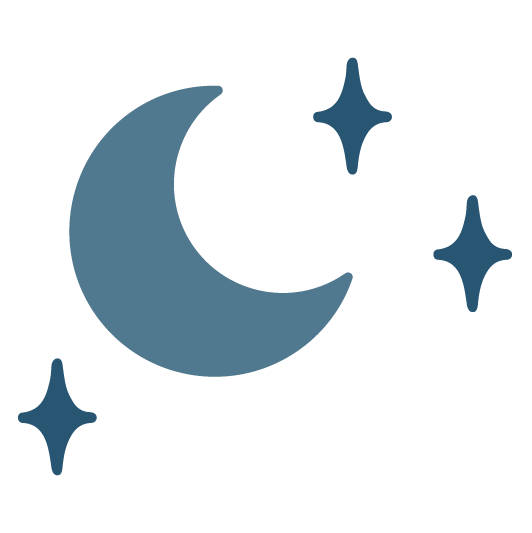Women sleep differently
While sleep is usually fine for the first half of the menstrual cycle, many women feel more tired during the latter half. Sleep is more disturbed at this stage, and the risk of anxiety and depression is higher. Compared to men, women are more vulnerable to the emotional effects of poor sleep. And we tend to experience more anxiety the day after too! So what’s driving these sleep problems? Biology and much more!
What makes sleep in women unique?
Well, it’s down to our cyclically changing ovarian hormonal milieu. Oestrogen and progesterone are the most powerful drivers behind the sleep problems many women experience. It’s their fluctuation rather than absolute levels that cause havoc. Often, sleep is made worse by experiencing menstrual symptoms such as tender breasts, headaches, bloating and changes in mood. A woman’s sleep also changes over her lifetime. Sleep problems may start in puberty when we experience the puberty-associated rise in ovarian hormones, and for many women sleep problems arise in periods when large hormonal changes take place.

How else does a woman’s sleep experience differ from a man’s?
A woman’s internal body clock tends to run a little faster. (Compared to a man that is.) The time it takes the clock to complete a cycle is, on average, about six minutes shorter compared to men. And for some women it’s even shorter: less than 24 hours! Physiologically speaking, this means that the rhythms of alertness, body temperature and melatonin, for example, are shorter and start earlier. Most importantly, though, the timing of sleep is earlier for most of us women. And this can have implications for the quality and duration of our sleep. On that note, women may need more sleep than men and have more deep sleep. What follows is that we accumulate sleep debt more quickly, and feel effects of sleep loss on health more severely.
It’s unclear right now why there are these differences. But to me they highlight the importance of regular sleep and wake times. For women and men.
What does having a faster ticking clock and earlier sleep timings mean for everyday life?
If you go to bed and wake up when your internal clock tells you to, not much. But if you go to bed much later than your body clock wants you to, you’re cutting into your sleep. Unfortunately, it’s unlikely you will make up for lost sleep in the morning. And that’s because your wake-up time is set by your body and/ or alarm clock. The body clock triggers the waking-up processes shortly before it expects you to wake up, irrespective of how many hours you have slept. You might notice this as drifting in and out of sleep or poor-quality sleep in the last few hours. Eventually this can lead to insomnia and other sleep problems. Women are almost twice as likely to develop insomnia than men! And as we get older the risk of developing sleep disorders such as obstructive sleep apnoea increases.
Note: When talking about women in this blog I refer to cis-women. That is because we lack research on sex and gender minorities. I sincerely hope this will change soon.
If you want to understand your sleep better and change it, book an exploratory call with me.
Warmly,
Dr Kat

Note: I am referring to research from cis-women. This is because until now there has been no research study looking specifically at the sleep architecture of trans women.
